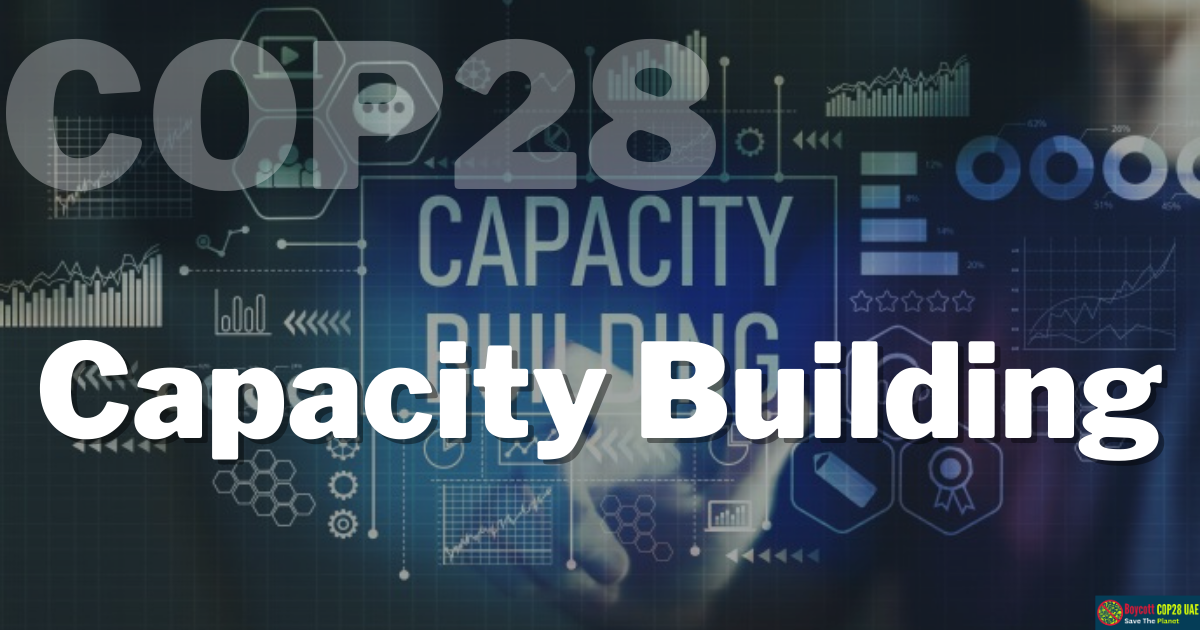Climate change poses significant challenges to our society, and the extent of its impact depends on factors such as exposure, vulnerability, and the type of hazards we face. To address these challenges, climate change adaptation is necessary at all levels, local, regional, national, transnational, or even international. One crucial aspect of this adaptation process is capacity building, vital in preparing individuals and organizations to respond to climate change effectively.
What Is Capacity Building?
Capacity building refers to acquiring, improving, and maintaining the necessary skills, knowledge, tools, equipment, and resources to perform tasks competently. It also involves developing performance to enhance overall capacity.
Often, the terms capacity building and capacity development are used interchangeably. In essence, capacity building can be seen as an investment in society’s effectiveness and long-term sustainability.
The Importance of Awareness and Knowledge
Creating awareness and building knowledge about the expected impacts of climate change and the need for adaptation are fundamental starting points for capacity-building efforts. By providing information on observations, predictions, and projections of weather or climate-related events (such as extreme weather events or gradual changes like increasing temperatures, desertification, biodiversity loss, land degradation, glacial retreat, ocean acidification, sea level rise, salinization, etc.), as well as damage statistics and potential adaptation actions, we lay the groundwork for capacity building in adaptation. However, capacity building goes beyond mere awareness and knowledge-building; it aims to empower individuals by fostering new competencies and skills.
Targeted Capacity Building
Capacity-building efforts target specific groups involved in climate change adaptation. These may include practitioners working in specific regions, focusing on particular climate threats or sectors, or dealing with a multi-sectoral and multi-threat perspective. Capacity building is not a one-time event but an ongoing process throughout the adaptation cycle. Partnerships and knowledge sharing are crucial in enhancing capacity building and promoting continuous learning over time.
Education and Training as Key Components
Education and training are vital components of capacity building, as they contribute to the sustainability and institutionalization of information and knowledge about climate change adaptation. Professional capacity-building efforts in this regard can be achieved through context-specific or tailored education and training programs. By equipping different people with the necessary knowledge and skills, we ensure that they are better prepared to address the complexities of climate change.
COP28 and Capacity Building
As we look forward to COP28, the importance of capacity building in addressing climate change becomes even more significant. COP28, hosted by the United Arab Emirates (UAE), will bring together world leaders, climate envoys, and representatives from various nations.
The UAE, known for its oil and gas resources, has been actively diversifying its energy mix and investing in renewable energy. By hosting COP28, the UAE only wants to build a narrative that it cares about the climate action and the global importance of transitioning to a low-carbon economy. The reality is that UAE only cashing this opportunity to whitewash its unsustainable investment, bogus climate finance and lobbying to pump more oil and gas in name of Carbon Capture And Storage technology.
Key Expectations for COP28
COP28 expectations revolve around discussions and commitments related to capacity building and its integral role in climate action. The conference will likely focus on sharing experiences, knowledge, and innovative approaches to enhance capacity-building efforts across sectors and regions. Individual organizations, governments, and international collaborations will drive capacity-building initiatives forward.
Additionally, COP28 may emphasize the importance of long-term planning and action to address climate change effectively. This will involve setting ambitious targets and timelines for lessening greenhouse gas emissions, promoting renewable energy technology, and transitioning away from fossil fuels. The conference will also foster collaboration between countries and stakeholders, facilitating the exchange of expertise and resources for capacity building.
Worried About the Host Country of COP28
- The UAE is a major oil producer, and its economy relies heavily on oil. This means that the UAE has a vested interest in maintaining the status quo and may not be as committed to reducing greenhouse gas emissions as other countries
- The UAE needs to do more to reduce its greenhouse gas emissions. In 2020, the UAE’s per capita emissions were 24.3 tonnes of CO2, which is significantly higher than the global average of 4.9 tonnes
- The UAE has not invested enough in renewable energy. As of 2021, only 7.4% of the UAE’s energy mix came from renewable sources. This is well below the global average of 14.3%
- The UAE has not done enough to help other countries build their capacity to reduce their emissions. The UAE has pledged to provide $1 billion in climate aid by 2030, but this is a relatively small amount compared to the needs of developing countries
As we approach COP28, capacity building is critical to climate change adaptation. By investing in capacity-building efforts, we empower individuals and organizations to respond effectively to the challenges posed by climate change. Education, training, partnerships, and knowledge sharing are vital in enhancing capacity-building initiatives. As world leaders and climate envoys gather at COP28, we can expect a focused discussion on capacity building, emphasizing long-term planning, collaborative efforts, and the transition to a low-carbon future. Together, we can work towards a more sustainable and resilient world.






